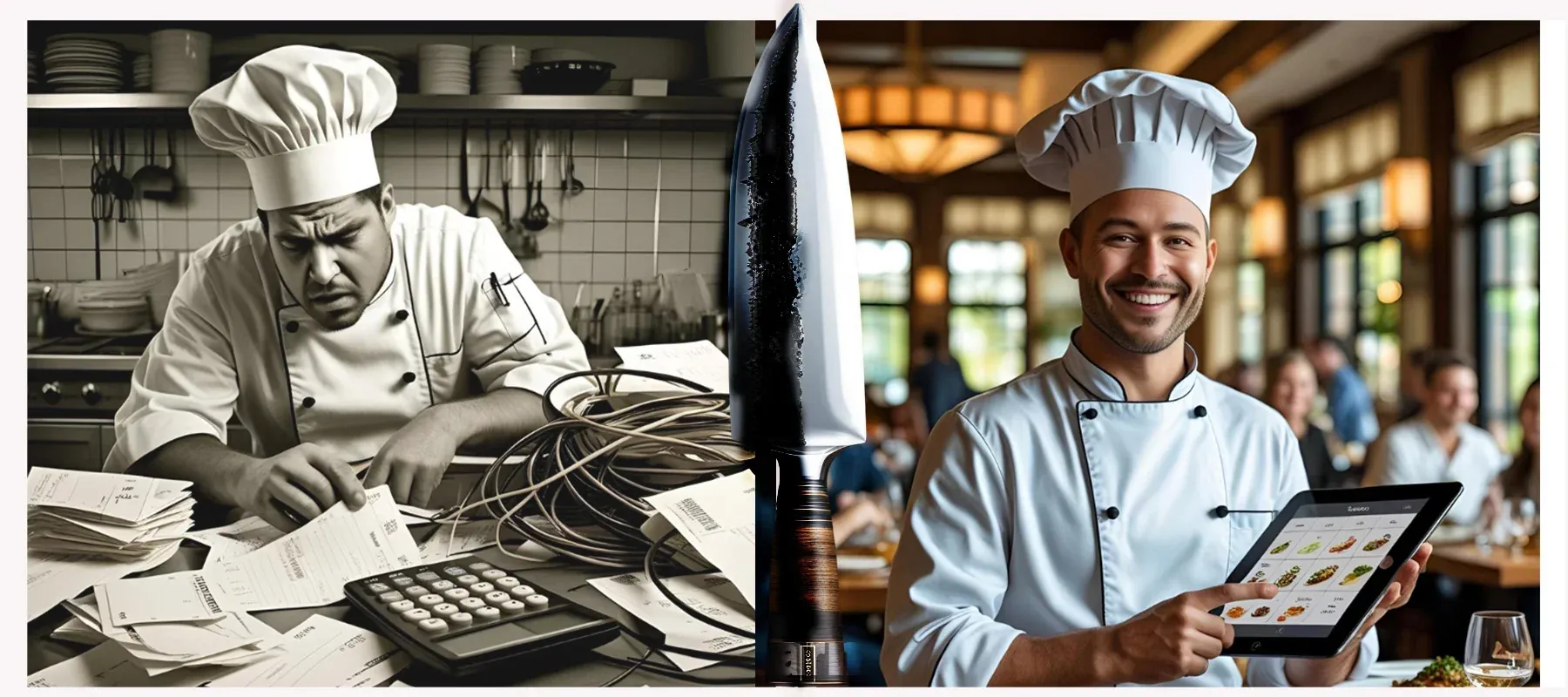How to Choose the Right Restaurant Management Software in Nepal
Binod Dhami · May 25, 2025 · 5 min read
How to Choose the Right Restaurant Management Software in Nepal

Introduction
Running a restaurant in Nepal today is both exciting and challenging. The food industry is evolving quickly with increasing competition, changing customer expectations, and the rise of digital technology. To stay ahead, many restaurant owners are turning to technology—not just for order taking and billing, but to manage every aspect of their business more efficiently.
If you’re considering adopting a restaurant
management software (RMS), you might wonder: How do I choose the right
one? With many options on the market, making the right choice can be confusing.
This guide is designed to help you
understand the key factors you should consider before investing in restaurant
management software in Nepal. Whether you run a small momo shop or a
multi-branch fine dining restaurant, picking the right system can make all the
difference in how smoothly your business runs.
Choosing the right RMS requires
careful consideration. Here are the essential features and factors to guide
you:
1. User-Friendly POS (Point of Sale) System
The core of any restaurant software
is the POS. This is where orders are taken and bills are generated, so it must
be fast, accurate, and easy for your staff to use.
· Why it
matters: Complicated systems slow down service and frustrate staff.
· What to look
for:
o Intuitive touchscreen interface or simple
navigation
o Ability to customize orders easily (e.g., “no
chili,” “extra sauce”)
o Supports multiple payment methods—cash, cards,
digital wallets like eSewa or Khalti
o Can handle dine-in, takeaway, and delivery
orders
A POS that works well under pressure
improves customer experience and reduces costly errors.
2. Real-Time Inventory Tracking
Running out of key ingredients
mid-service or overstocking perishable items wastes money and impacts your
restaurant’s reputation.
· Why it
matters: Accurate inventory management reduces waste and ensures you’re
never caught off guard.
· What to look
for:
o Automatic deduction of stock as orders are
processed
o Alerts for low inventory levels
o Easy-to-understand inventory reports that show
usage trends and wastage
Real-time inventory tracking is
especially important in Nepal, where sourcing certain ingredients can sometimes
be unpredictable.
3. Support for Multi-Branch and Multi-Device Use
If you plan to expand your
restaurant business or already have multiple locations, managing each branch
efficiently is crucial.
· Why it
matters: Centralized control saves time and avoids confusion.
· What to look
for:
o Single dashboard to manage all outlets
o Ability to synchronize menu changes, pricing,
and promotions across branches
o Role-based access control so managers and
staff can only access what they need
o Compatibility across devices—tablets, phones,
and computers
This helps maintain consistency and
gives you an overview of your entire operation at any time.
4. Detailed Sales and Performance Reports
Without data, decision-making is
guesswork. Knowing which dishes sell well, when your busiest times are, and how
your staff performs is vital for growth.
· Why it
matters: Informed decisions improve profitability and customer
satisfaction.
· What to look
for:
o Daily, weekly, and monthly sales reports
o Insights into popular menu items and slow
movers
o Staff performance tracking (e.g., orders
processed per waiter)
o Ability to export reports for accounting and
tax filing
Good reporting tools empower you to refine your menu, optimize staffing, and run promotions effectively.
5. Integration with Online Ordering and Delivery Platforms
The popularity of food delivery apps
in Nepal like Foodmandu, Pathao Food, and Bhojdeals has grown significantly. If
your restaurant offers delivery, managing online orders efficiently is
critical.
· Why it
matters: Manual handling of online orders can cause delays and errors.
· What to look
for:
o Integration with popular delivery platforms to
automatically receive orders
o Ability to update menu and pricing in
real-time across platforms
o Tracking order status to inform customers
promptly
o Option to manage your own online ordering
system
Seamless delivery integration boosts
sales and customer convenience.
6. Local Language Support and Reliable Customer Service
For many Nepali restaurant owners
and staff, having software in Nepali or with Nepali language support reduces
confusion and speeds up learning.
· Why it
matters: Easier training and faster problem resolution save time and money.
· What to look
for:
o Nepali language interface or bilingual options
o Local customer support with fast response
times
o Understanding of Nepali tax laws and business
practices
A local partner can provide better assistance
tailored to your unique needs.
7. Pricing that Fits Your Budget and Growth Plans
Restaurant management software
varies widely in cost. Consider what makes sense for your current business and
future expansion.
· Why it
matters: Avoid paying for features you don’t need or expensive long-term
contracts.
· What to look
for:
o Transparent pricing with no hidden fees
o Flexible plans (monthly, yearly) that scale
with your business
o Cloud-based software that reduces upfront
hardware costs
o Free trials or demos so you can test before
committing
Finding affordable and scalable
software protects your investment.
Why the Right Software Can Make or Break Your Business
Choosing the wrong software can lead
to staff frustration, wasted money, and unhappy customers. The right system
makes your restaurant more efficient, data-smart, and ready to grow.
